READY TO GET STARTED?
REQUEST A FREE ESTIMATE
Fill out the form below or call (888) 466-7849 for a free, no-obligation estimate.
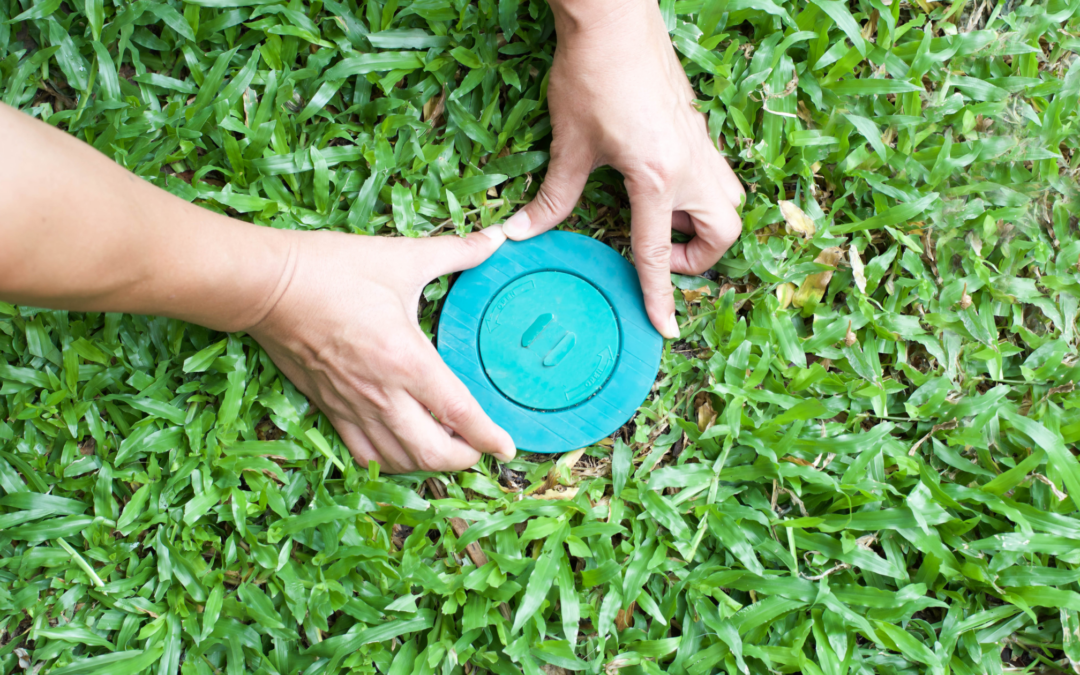
Termites can be a silent threat to the structural integrity of your home, and in Georgia, where the climate is conducive to termite activity, it’s essential to be proactive in termite control. In this blog post, we’ll explore how often you should treat for termites, common types of termites found in Georgia, signs of termite damage, the importance of annual inspections, preventive measures, and what to do if termites invade your home.
Georgia is home to several termite species, with the most common being subterranean termites, drywood termites, and Formosan termites. Each species poses unique challenges, making it crucial to understand their behavior for effective termite control.
Recognizing termite damage early is key to minimizing the impact on your home. Look out for hollow-sounding wood, mud tubes on exterior walls, discarded wings near windows and doors, and visible damage to wooden structures. If you notice any of these signs, it’s time to take action.
To stay ahead of potential termite infestations, annual inspections are a must. Professional termite control companies in Georgia offer thorough inspections to detect early signs of termite activity, providing peace of mind and safeguarding your investment.
Prevention is the first line of defense against termites. Keep woodpiles away from your home, ensure proper drainage to prevent water accumulation near the foundation, and seal any cracks or crevices in your home’s exterior. Additionally, consider opting for pressure-treated wood in construction projects.
Discovering termites in your home can be alarming, but swift action is crucial. Contact a reputable termite control company immediately. Professional pest control experts will assess the extent of the infestation, recommend a tailored treatment plan, and provide guidance on preventing future occurrences.
Protecting your home from termites requires a proactive approach. By understanding the types of termites, recognizing signs of damage, prioritizing annual inspections, implementing preventive measures, and seeking professional help when needed, you can ensure a termite-free living space. Take the first step in termite control – request a free quote and secure the longevity of your home.
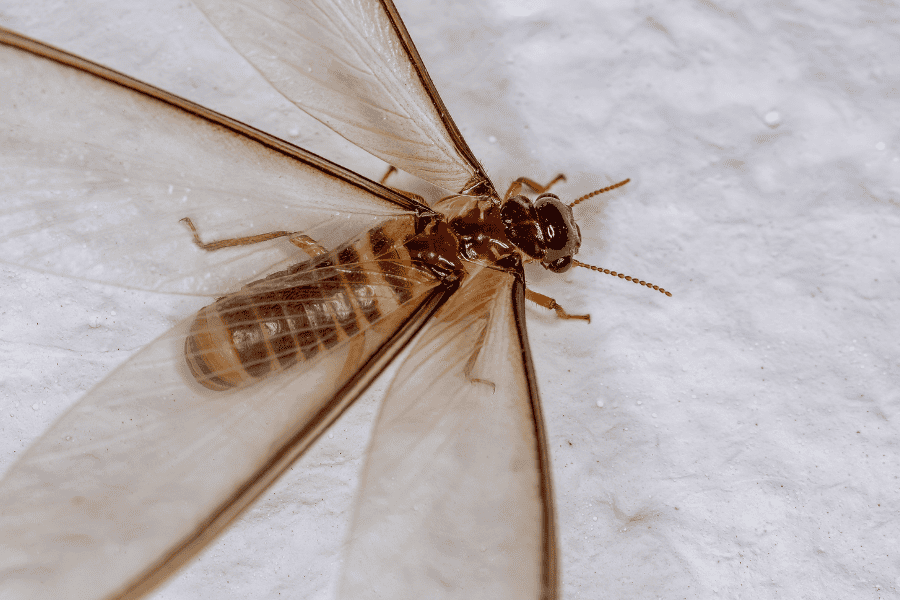
Dealing with a drywood termite infestation is less than ideal since these pests can cause significant structural damage to your Florida home. So how can you prevent termites from invading? It’s important to understand the characteristics of drywood termites, signs of their activity, and the preventative measures to place throughout your home, we break down all these below.
Drywood termites have an oval-shaped waist, short legs, and a cream-white to light brown colored body. The size of these termites depends on their age, but usually range from ¼ inch to 1 inch long. Unlike their counterpart, the subterranean termite, drywood termites do not need soil to live. Instead, they excavate wood, living and nesting within wooden structures or dry wood, such as attic framings.
Since these termites live in the excavated wood, it can be difficult to spot and identify them. However, there are still termite signs you can look out for. Swarms of termites or discarded wings near windowsills or doors is an early indication that a colony has been established at your home. Likewise, spotting their droppings, or frass, is a telltale sign of a termite infestation. These droppings look like small mounds of tiny pellets.
Consider implementing these do-it-yourself termite control measures throughout your property to avoid a termite infestation:
If you’ve noticed drywood termites on your property or would like to get ahead of your termite prevention, contact your local Florida termite control company for more information. These professionals will provide you with a free inspection, a treatment plan based on your home’s needs, and recommendations on preventing termites in the future.
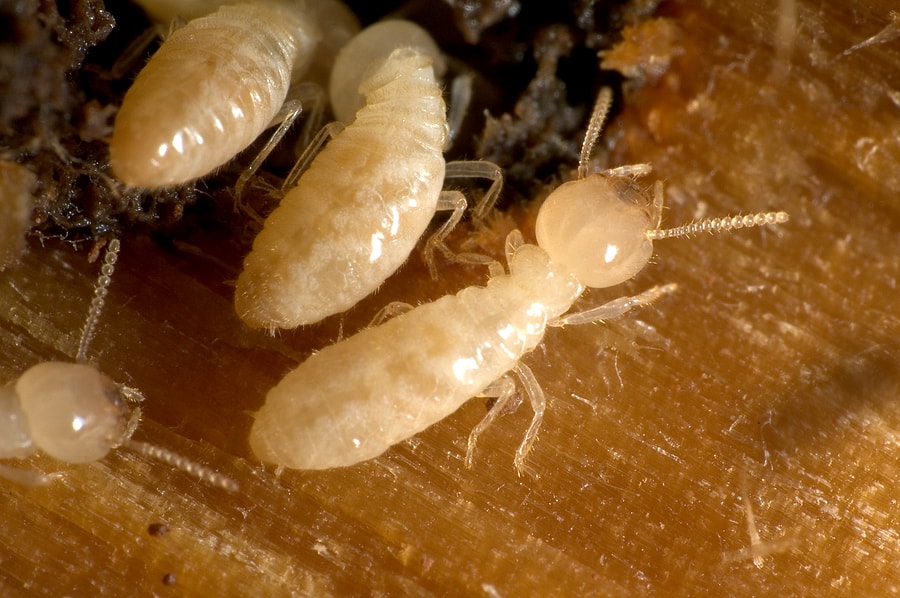
As winter settles in Georgia, many homeowners may breathe a sigh of relief, thinking that pests like termites take a break during the colder months. However, the reality is that termites are resilient creatures, capable of surviving and even thriving in the cold. In this blog post, we’ll explore whether termites are active in winter, how they avoid the cold weather, when termite season hits Georgia, and most importantly, effective ways to prevent termites in winter.
Contrary to popular belief, termites remain active even in the colder months. While they may slow down their activity, they don’t go dormant. Termites are cold-blooded insects, meaning their body temperature is influenced by their environment. In warmer climates like Georgia, termites may continue their destructive habits throughout the year.
Termites are well-adapted to survive harsh conditions. Subterranean termites, one of the most common types in Georgia, create elaborate underground tunnels that provide a stable and temperature-controlled environment. These tunnels help them avoid extreme temperatures, including the cold of winter. Additionally, termites may move deeper into the soil where temperatures are more stable.
Termite season in Georgia typically starts in spring and extends through the early fall. This is when termites are most active and likely to swarm, seeking new locations to establish colonies. However, as mentioned earlier, they remain active throughout the year, making continuous termite control efforts crucial for homeowners.
Don’t wait until termite damage becomes evident. Protect your home by taking proactive measures against termites, especially during the winter months. Request a free termite control quote today and let our experts safeguard your home against these persistent pests. Don’t let termites take advantage of the winter season. Invest in termite prevention now and enjoy peace of mind throughout the year. Contact your local pest control company today and take the first step toward a termite-free home.
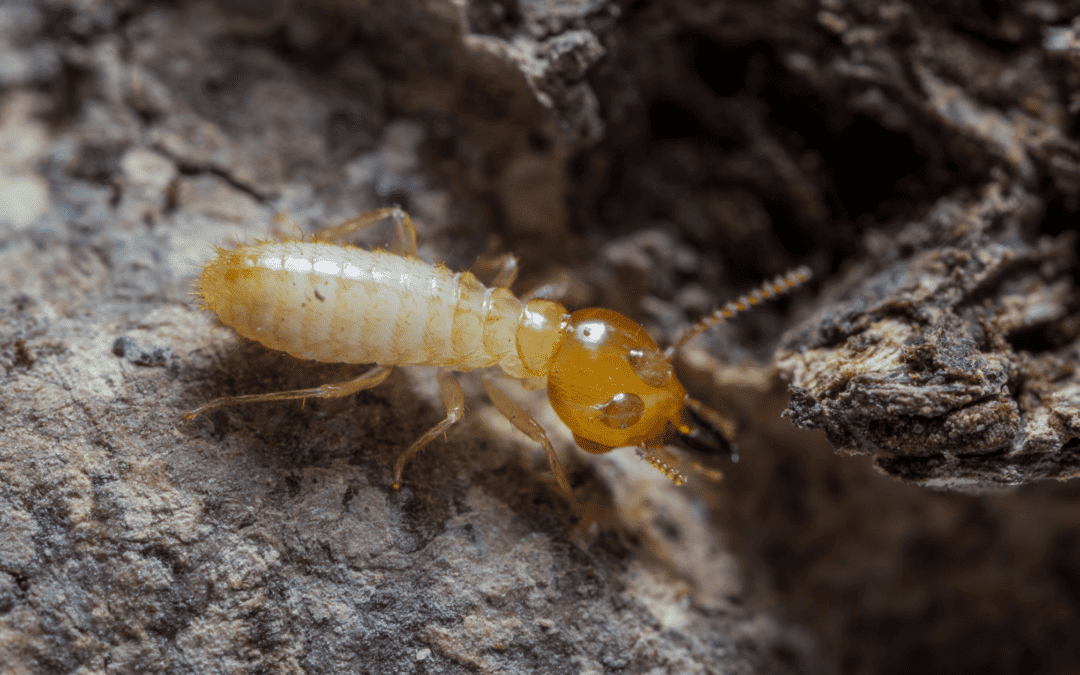
Winter in Georgia may bring chilly temperatures, but for homeowners, it’s no time to let their guard down, especially when it comes to termite control. Contrary to popular belief, termites can remain active during the colder months, making it crucial to stay vigilant year-round. In this blog post, we’ll explore the types of termites found in Georgia, the concept of a termite season, signs of a termite infestation, and essential tips for prevention.
Georgia is home to several termite species, with the most common being Eastern Subterranean Termites, Formosan Subterranean Termites, and Drywood Termites. Each type poses its own set of challenges for homeowners, making termite control a necessity.
While many associate termite activity with warmer months, Georgia’s mild climate means that termites can remain active throughout the year. There might be a slight slowdown in winter, but it’s a mistake to assume that termites take a complete hiatus. In fact, their activity might even go unnoticed, making it crucial for homeowners to be proactive in their termite control efforts.
Detecting termite activity early is key to preventing extensive damage. Keep an eye out for the following signs:
Prevention is the best defense against termites. Here are some tips to protect your home:
Don’t wait until it’s too late. Safeguard your home from termite damage by requesting a free termite control quote from our experienced team. Our experts are ready to assess your property, identify potential risks, and implement effective termite control measures tailored to your needs.
In conclusion, termites in Georgia don’t take a winter vacation. Stay informed, remain vigilant, and take proactive steps to protect your home from these silent invaders. Contact a professional pest control company today for a comprehensive termite control solution and ensure your home stays termite-free year-round.
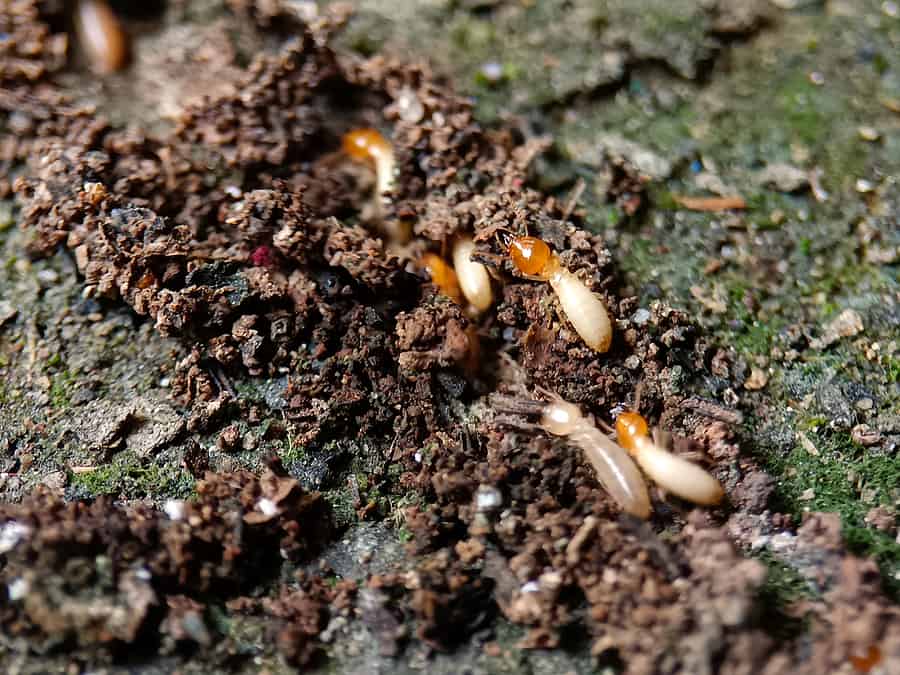
Georgia is known for its beautiful landscapes, warm weather, and vibrant communities. Unfortunately, it’s also known for its thriving termite populations. Termites can be a homeowner’s worst nightmare, causing extensive and costly damage to your property. In this blog post, we’ll explore why termite treatment is a necessity for your Georgia home, discussing the types of termites found in the state, signs of termites, how to spot termite damage, and crucial tips to prevent and eliminate these destructive pests from your yard.
Georgia is home to several termite species, but the most common ones that homeowners encounter include Eastern Subterranean Termites and Formosan Termites. These voracious pests feed on wood, paper, and cellulose materials, posing a significant threat to your home’s structural integrity.
Termite damage can be difficult to detect until it’s severe. To identify termite damage, look for the following:
Protecting your Georgia home from termite damage is essential, and timely termite treatment is crucial in this battle. If you suspect or have confirmed termite activity in your home, don’t hesitate to seek professional assistance. Request a free termite control quote from our experienced team. We have the expertise and local knowledge to help you safeguard your home from these destructive pests.
Don’t wait until termites cause extensive damage to your property. Contact your local pest control company today for a free termite control quote and take the first step in defending your Georgia home against these silent invaders. Your peace of mind is just a call away!